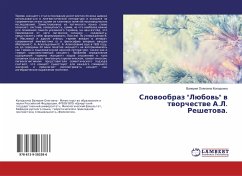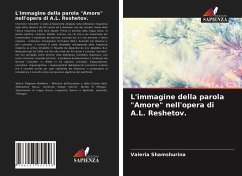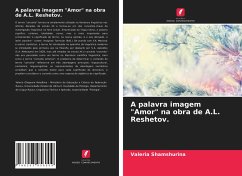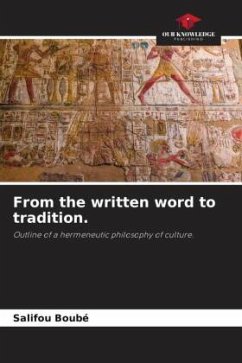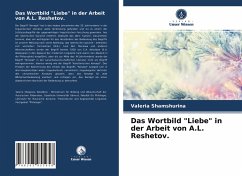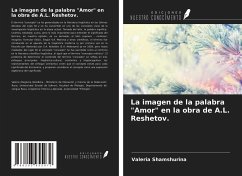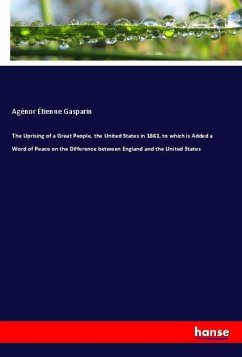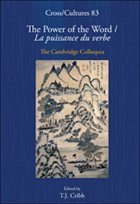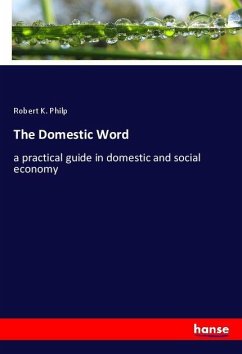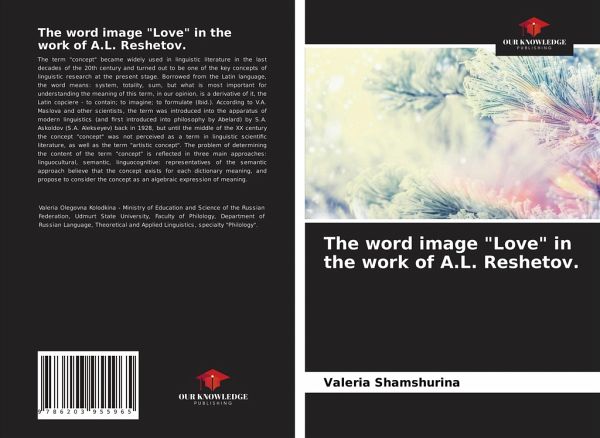
The word image "Love" in the work of A.L. Reshetov.
Versandkostenfrei!
Versandfertig in 6-10 Tagen
33,99 €
inkl. MwSt.

PAYBACK Punkte
17 °P sammeln!
The term "concept" became widely used in linguistic literature in the last decades of the 20th century and turned out to be one of the key concepts of linguistic research at the present stage. Borrowed from the Latin language, the word means: system, totality, sum, but what is most important for understanding the meaning of this term, in our opinion, is a derivative of it, the Latin copciere - to contain; to imagine; to formulate (Ibid.). According to V.A. Maslova and other scientists, the term was introduced into the apparatus of modern linguistics (and first introduced into philosophy by Abe...
The term "concept" became widely used in linguistic literature in the last decades of the 20th century and turned out to be one of the key concepts of linguistic research at the present stage. Borrowed from the Latin language, the word means: system, totality, sum, but what is most important for understanding the meaning of this term, in our opinion, is a derivative of it, the Latin copciere - to contain; to imagine; to formulate (Ibid.). According to V.A. Maslova and other scientists, the term was introduced into the apparatus of modern linguistics (and first introduced into philosophy by Abelard) by S.A. Askoldov (S.A. Alekseyev) back in 1928, but until the middle of the XX century the concept "concept" was not perceived as a term in linguistic scientific literature, as well as the term "artistic concept". The problem of determining the content of the term "concept" is reflected in three main approaches: linguocultural, semantic, linguocognitive: representatives of the semanticapproach believe that the concept exists for each dictionary meaning, and propose to consider the concept as an algebraic expression of meaning.




